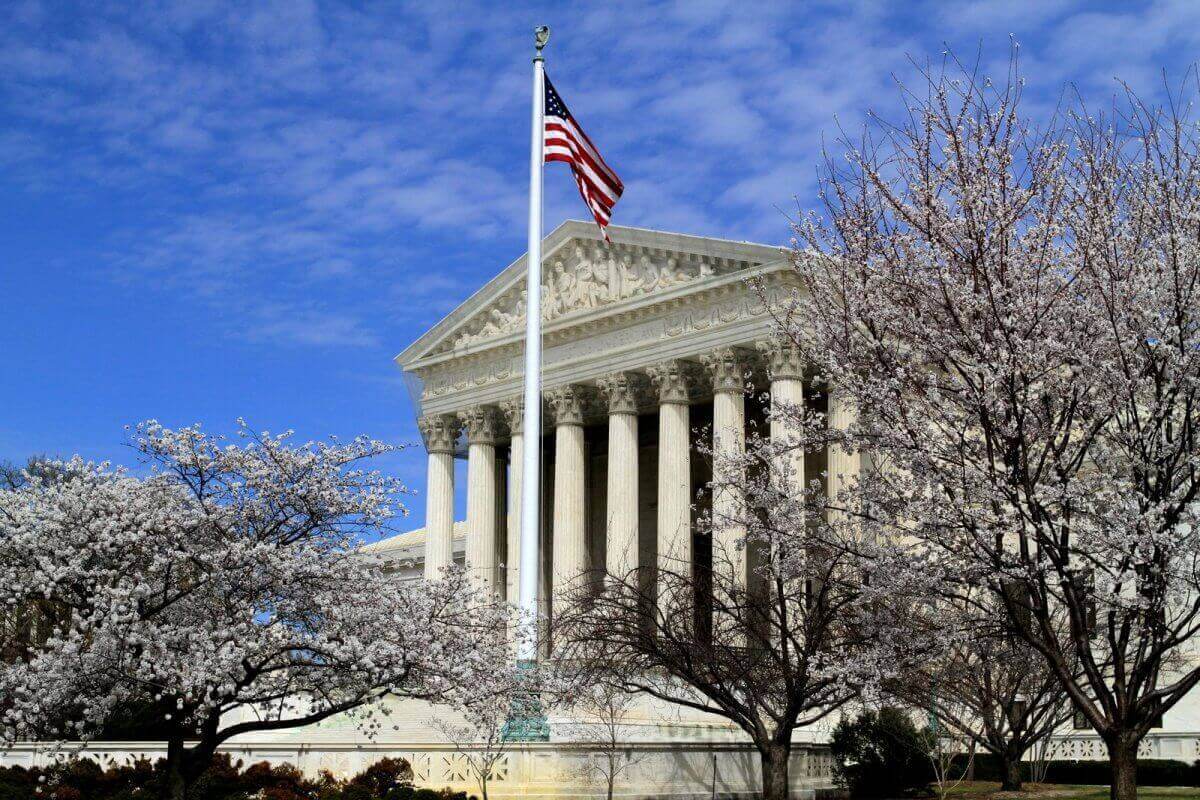
What does the Supreme Court have to say about suing nations hostile to the United States?
Lost among several high-profile cases the Supreme Court recently decided to take—among them Trump’s travel ban and the religious rights battle of Masterpiece Cakeshop—was a curious case that blends terrorism victims, ambiguous laws, and diplomacy.
Rubin v. Islamic Republic of Iran centers around the victims and families of victims of a Hamas terrorist attack in 1997. The attack, a suicide bombing in Jerusalem, was a direct result of material aid from Iran to Hamas. Accordingly, in 2003, the U.S. District court for the District of Columbia awarded very handsome sums to each of the plaintiffs under the terrorism exception to the Foreign Sovereign Immunities Act, which generally prevents litigation against foreign governments in U.S. courts.
However, after the 2003 ruling, the next step was unclear. It’s not like Iran, a country with whom we aren’t exactly friendly, was going to say, “well, I guess we lost in court, here’s your money!” What are the chances the United States would honor a similar ruling in, say, North Korea?
Normally, when a party will not willingly pay up in a suit like this one, the government seizes assets in order to satisfy the judgement for the plaintiff. Currently, the plaintiffs are suing to seize a large amount of ancient Persian artifacts “allegedly owned by Iran,” now held by the Field Museum of Natural History and the Oriental Institute at the University of Chicago. However, FSIA doesn’t just provide jurisdictional immunity for other countries (to which Iran lost its right when it financed terrorism) but it also provides immunity from “attachment and execution,” which is just legalese for seizure of assets.
FSIA gave these terrorism victims the right to Iran’s money but no way to get ahold of it.
Seeing this issue, Congress tried to be helpful for once and tacked on a provision to FSIA, section 1610 (g), in 2008. But, as usual, Congress was anything but helpful. Instead, they created an imbroglio of a law that led to contradictory rulings in the Seventh and Ninth Circuits.
Section 1610(g) states, “the property of a foreign state against which a judgement is entered under section 1605A [the terrorism exception to jurisdictional immunity], and the property of an agency or instrumentality of such a state… is subject to attachment in aid of execution… as provided in this section.”
The language, “as provided in this section,” led the Seventh Circuit to read the section narrowly. It ruled that the attachment and execution of foreign assets in terrorism judgements must be covered by another exception in section 1610. One exception that the plaintiffs in Rubin have tried to qualify these Persian artifacts under is the exception for commercial activity. However, the artifacts are not being used by Iran, but these academic institutions in Chicago. Even if the answer to the question, “whose commercial use counts?” is, “it doesn’t matter,” it’s not exactly clear that the way these artifacts are being used for study qualifies as commercial use.
The plaintiffs in Rubin have a much better chance to win at the Supreme Court level if they can convince the justices to read section 1610(g) broadly, as the Ninth Circuit did in its decision in Bennett v. Islamic Republic of Iran—a case very similar to Rubin—that lead to a split with the Seventh. A broad reading of the section would lead one to see it as a “freestanding provision” allowing assets of terrorist financiers to be taken simply because they financed terrorism.
The Ninth Circuit took into account Congress’ intent when issuing its opinion in Bennett, that stated, in part, “given both the text of the statute and Congress’ intention to make it easier for victims of terrorism to recover judgments, we hold that § 1610(g) is a freestanding provision for attaching and executing against assets to satisfy a money judgment premised on a foreign state’s act of terrorism.” Why, the court asked, would Congress add even more snags for terrorism victims when they intended to help them? “We cannot impute to Congress an empty statutory gesture,” the court said.
So, when the Supreme Court justices hear this case in the October term, they’ll have to decide whether they want to read the law in a strictly textualist (if a little unreasonable) way or if they prefer to ask the question, “what would Congress want?” If they take the latter “WWCW” approach, the plaintiffs’ side should be optimistic about their chances as just last September Congress overrode former President Obama’s veto of a bill that allows 9/11 victims to sue Saudi Arabia for any role it may have played in 9/11 by a resounding 97-1 in the Senate and 348-77 in the House.
However, the consequences of Rubin go far beyond whether innocent victims of terrorism can get the compensation they deserve. There could be diplomatic consequences or retaliation if the United States suddenly made it a habit of taking other countries’ stuff. In fact, the Obama administration sided with Iran in Rubin for exactly those reasons. “The seizure of a foreign sovereign’s property via attachment or execution can affect the United States’ foreign relations,” the administration said in its amicus brief for the case.
In fact, both the Bush and Clinton took a similar stance on efforts to attach foreign assets.
So, while we’re focused on travel bans and gay wedding cakes this fall, keep an eye on Rubin as well. This important but overlooked case will likely set important precedent, possibly upset the United States’ international relations, and maybe even move Congress to act to clarify the statutes in question.










